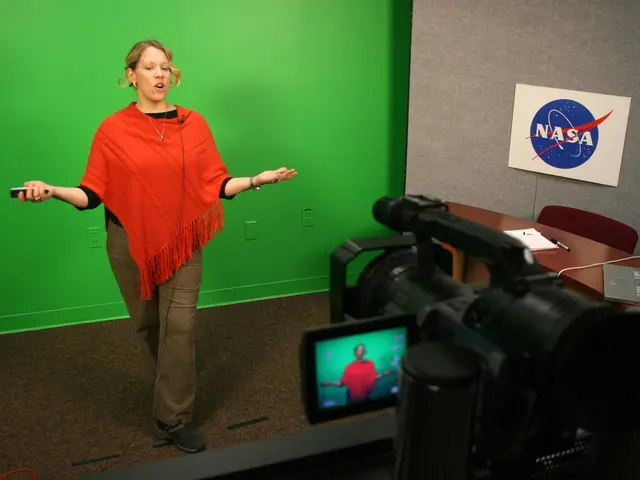Middle East Nations Opt for Gradual Reduction Instead of Complete Elimination
In the heart of the Middle East, two oil-rich nations, Saudi Arabia and the UAE, are making a significant shift towards renewable energy, recognizing the region's ideal suitability for solar power. This transition is not a sudden abandonment of fossil fuels, but a gradual reduction, or "phasing down," as these countries aim to balance their climate goals with economic stability.
Saudi Arabia's ambitious project, Neom, a futuristic megacity, will be powered entirely by renewables. The kingdom aims to generate 50% of its electricity from renewables by 2030 and 100% by 2060, investing $1 trillion in renewable energy and energy efficiency to reach net-zero by 2060. The UAE, on the other hand, aims to have 25% of its energy from renewables by 2025, and 45% by 2050, investing $160 million in clean energy projects.
This gradual approach is a reflection of the region's heavy reliance on fossil fuels and the challenges in balancing the urgent climate goal of "phasing out" fossil fuels to combat global warming with maintaining energy security and economic stability. The difference between "phasing down" and "phasing out" is significant in this context, with "phasing down" seen as more feasible and balancing reduction with economic needs.
At the ongoing UN's annual climate conference, COP28, hosted in Dubai, this nuanced difference shapes the climate negotiation dynamics. Discussions may lean toward "phasing down" as a transitional compromise while aiming for eventual "phase out."
However, the comments made by COP28 president Sultan Al Jaber in a discussion with Mary Robinson, former president of Ireland and UN climate envoy, have caused controversy. While Al Jaber initially stated that there is no science supporting the phase-out of fossil fuel, he later acknowledged that the phase-down or phase-out of fossil fuel is inevitable and essential.
This pragmatic approach contrasts with the more urgent and ideological stance of advanced economies like Europe. The UAE and Saudi Arabia, recognizing that they sit on a finite resource of oil, with "peak oil" predicted between 2025 and 2040, are diversifying their economies to ensure a sustainable future.
In conclusion, the Middle East's transition towards renewable energy is a gradual one, balancing the need for climate action with economic stability. The choice between fossil fuels and renewable energy is not either/or, but and/and - at least until the renewable options become as profitable as their current business model. As the COP28 discussions unfold, the region's pragmatic approach to climate change will undoubtedly shape the future of global energy policy.
Read also:
- Companies based in America are moving towards an environmentally-friendly future.
- Opting for Organic Irish Dairy Products: A Safer, Eco-Friendly Decision Benefiting Both Your Health and the Environment
- Women-Focused Space Exploration Hiking Groups Rise in Popularity
- Environmentally Friendly Household Cleaners: Maintain a Sustainable Home with These DIY Cleaners








